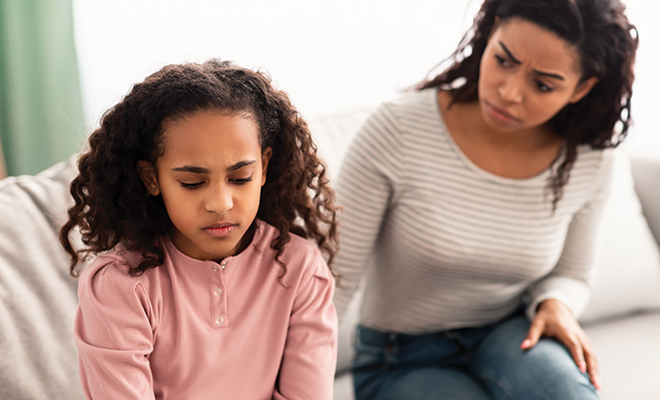
Helping Your Children Get Back to Normal Life
As life moves into a new phase with pandemic restrictions lifting, many children returning to school after months of online instruction are experiencing a new form of anxiety about reentry into society. Child development experts say this is to be expected. Parents may be excited to have their children return to in-person learning, but some children may have already adapted to being at home and will need help with adjusting to their new normal.
According to Children’s Hospital Los Angeles psychologist Karen Rogers, PhD, “We all want to hope that returning to school is going to mean a relief from all the stressors this past year has brought. But actually, this is going to be another challenging transition for many children.”
Remember, Each Child is Unique
Children experienced the COVID-19 pandemic in countless different ways, making each child’s reintegration a unique experience. Some will adapt without problems while others may have learning or social issues. Many children lived through physical and emotional hardships, including a lack of support for online learning or the illness or death of a loved one, while other children had an easier time during the pandemic.
Teachers need to recognize the uniqueness of each child’s experience and try to individualize assignments as much as possible. Some children may have thrived academically while others will have fallen behind because they lacked technology for online learning or because they needed to be in a classroom to learn. No child should be made to feel embarrassed or ashamed about their learning level when they return to school.
Children will also have unique emotional reactions to changes in the world as the pandemic emergency winds down. Some may undergo separation anxiety after spending so much time at home with their families and pets. “Classroom teachers should understand that kids are going to need some time to adjust and learn how to be in school under these new conditions,” says Dr. Rogers.
Encourage Kids to Talk
Parents and teachers can let children know that there’s nothing wrong with feeling anxious or uncertain about going back to school and spending more time away from home. There may still be restrictions in place that feel strange and unfamiliar, so kids should be encouraged to ask questions and talk about their feelings.
Mental health experts have seen a significant increase in youth anxiety since March 2020, along with more depression, boredom, frustration and insomnia. Children are for the most part resilient, but extended stressful situations such as the pandemic can lead to extended psychological distress.
Parents have also struggled during the pandemic, with stresses about work, childcare and health taking their toll. Adults should recognize their own fears and negative feelings and not try to ignore those feelings in children. Acknowledge that things are still not exactly like they were before, but also point out the positive changes and new opportunities for learning and socializing. Let children know that everyone has worries, but we still do our best to carry on.
Exercise and Recreate Together
Child development experts say that participating in recreational activities together is one of the best ways for a parent and child to have meaningful communication. Conversations that take place while walking, biking, crafting and playing games can be especially meaningful when children are allowed to explore their curiosity and emotions. Children develop their own theories about why things are happening; parents who spend active time with their children have more opportunities to help shape this narrative. Stay in touch by holding on to one-on-one time, even when schedules start to be filled with new or renewed activities.
Help Exercise Social Skills
Children with limited social connections during the pandemic may need help with their social skills. If they’ve been away from the classroom, organize safe interactions with other children before school starts. Let them know that it’s okay to feel nervous about being around more people and that they’ll feel more comfortable over time. Parents should be prepared for some mistakes to be made as children find their way back to old friends and try to make new ones. Keep the lines of communication open. Even though it may seem easier to let an anxious child avoid social interactions, it will only increase their need for isolation and decrease their self-confidence.
Children and teens who have not been vaccinated may still be worried about catching COVID-19. These worries should not be treated as unreasonable. Parents should listen to their children’s concerns and stay informed about what’s going on in the community so they can provide age-appropriate guidance about staying safe while venturing into the outside world. Remind children that safety strategies will change as the pandemic situation changes so they don’t become too attached to always washing their hands or wearing a mask. ■
Sources: chla.org, PBS.org and washingtonpost.com.







